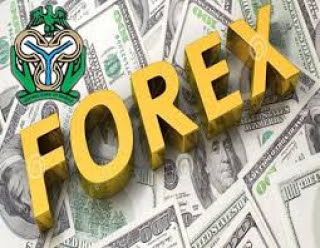Nigeria’s currency, the Naira, depreciated in exchange value against the US dollar to its worst level at the black market on Friday and traded at N755/$1 at the black market compared to N742/$1 it traded on Thursday.
According to black market traders, the depreciation of the Naira at the parallel market, which was the highest over the past months and represented a market differential of N313.87/$1 between the official market and the parallel market, was due to increased demand amid FX worsening dollar supply gap in the market.
Also, at the peer-to-peer (P2P) cryptocurrency FX exchange, the currency’s exchange rate fell to N751.99/$1 against the US dollar, from N748.7/$1 recorded during the previous day’s trading session.
However, the Naira’s exchange rate at the official market remained stable at N441.13/$ as it traded on Thursday, ostensibly due to FX supply by the Central Bank of Nigeria (CBN) to stabilize its exchange rate.
Over the past years, the Central Bank of Nigeria (CBN) has been supplying dollars to FX traders at the official window and the licensed traders at the parallel market until recently when it suspended supply to Bureaux De Change (BDC) traders, in its efforts to achieve some stability in the currency’s exchange rate.
Despite the interventions the Naira has not improved in exchange rate value, trading at over N700/$1 over the past weeks in the parallel market as against the about N515/$1 it was trading before the withdrawal of FX supply by the apex bank to the BDC operators.
The apex bank discontinued the sale of FX to Bureau De Change operators last year following speculations that some of them were engaging in round-tripping of the dollars supplied them to meet foreign exchange needs of customers.
The nation’s foreign reserve has not really grown over the past months, oscillating between $36 billion and $40 billion, due partly to the apex bank’s interventions, particularly the official market, to achieve some exchange rate stability for the local currency.
Analysts link the worrisome development to other factors, including the changing pattern of foreign trade especially as it relates to the global supply chain in recent months, institutional changes in the economy and structural shifts in production, amongst others.




